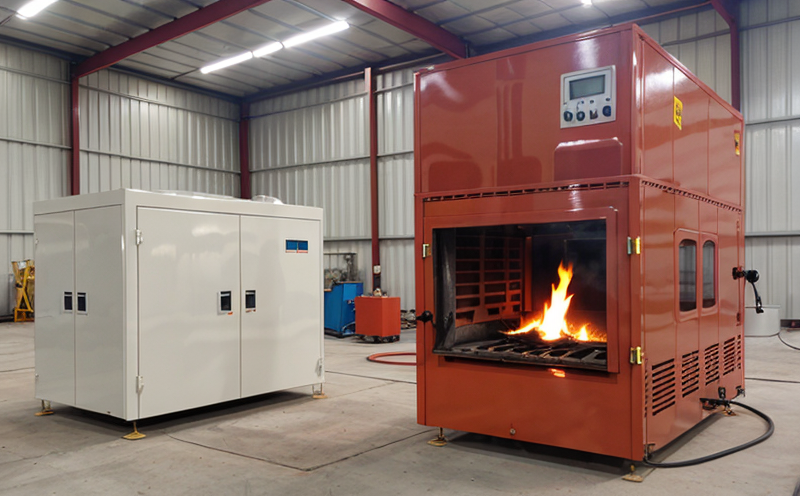ISO 11357 Differential Scanning Calorimetry DSC Testing Precision and Accuracy Evaluation Test
The ISO 11357 standard outlines the procedures for conducting differential scanning calorimetry (DSC) tests to evaluate the precision and accuracy of measurement systems used in thermal analysis. This service is crucial for ensuring that thermal data obtained from DSC instruments are reliable, repeatable, and accurate across various industries.
The primary focus of this test is on the evaluation of the precision and accuracy of a DSC instrument's measurements by comparing results with known standards or reference materials. The process involves subjecting samples to thermal cycles under controlled conditions and analyzing the heat flow between sample and reference during these processes. By doing so, we can identify any discrepancies in measurement that may arise due to instrument calibration errors, experimental conditions, or other factors.
One of the key aspects of this service is the thorough preparation of specimens for testing. Proper specimen handling ensures consistent results throughout multiple trials and comparisons. This includes selecting appropriate sample sizes, ensuring uniformity within each batch, and adhering strictly to prescribed storage temperatures before analysis begins. Additionally, it's important to note that different materials require specific treatment methods prior to testing; thus, our team will tailor the preparation process according to your material type.
For accurate DSC measurements, precise control over temperature ramp rates is essential since they significantly influence the shape and position of endothermal or exothermal peaks observed during heating or cooling scans. Our laboratory employs state-of-the-art equipment capable of maintaining extremely stable temperatures within narrow ranges (
The DSC instrument used in this service is equipped with a robust furnace system designed to maintain consistent temperature profiles during sample heating and cooling cycles. The software associated with the instrument allows for real-time data acquisition, processing, and visualization, making it easier to interpret results quickly and efficiently. Furthermore, advanced features like baseline correction algorithms help eliminate noise from the raw data set, ensuring high-quality outputs even when dealing with complex materials or extreme temperature ranges.
When interpreting DSC curves generated during precision and accuracy evaluations, several parameters need careful consideration: peak shape, onset temperature, midpoint temperature, and area under peaks. These characteristics provide valuable insights into material properties such as crystallization behavior, melting points, glass transition temperatures, and enthalpy changes associated with phase transformations.
Environmental and Sustainability Contributions
- Emissions reduction through optimized process monitoring
- Promotion of circular economy practices via better understanding of materials' thermal behavior during recycling processes
- Enhanced energy efficiency due to improved design based on accurate thermal analysis data
The insights gained from precise DSC testing contribute directly towards environmental goals by enabling more efficient resource utilization and reducing waste generation. For instance, understanding how different materials respond thermally during processing can lead to optimized manufacturing processes that consume less energy while producing higher quality products.
Eurolab Advantages
- State-of-the-art DSC equipment from reputable manufacturers
- A highly experienced team of scientists specializing in thermal analysis and material science
- Comprehensive quality assurance programs ensuring consistent results across all tests performed
- Extensive experience working with various industries including automotive, electronics, pharmaceuticals, etc.
Our dedicated professionals bring years of expertise in thermal analysis and material science to every project they undertake. We pride ourselves on delivering accurate, reliable results consistently across all projects performed at our facility. With a diverse portfolio spanning multiple sectors, we have the capability to meet your unique needs whether you're developing new products or improving existing ones.
Use Cases and Application Examples
- Evaluation of polymer blends for their compatibilization potential during development stages
- Determination of glass transition temperatures in pharmaceutical compounds to optimize storage conditions
- Monitoring the thermal stability of electronic components during design validation phases
- Investigation into the compatibility between metals and ceramics used in advanced composite structures
In addition to these examples, our services can be applied broadly across many fields where precise knowledge about materials' thermal behavior is critical. From academic research institutions conducting fundamental studies on phase transitions to industrial partners looking for ways to enhance product performance or develop new formulations, we offer tailored solutions suited specifically to your goals.





